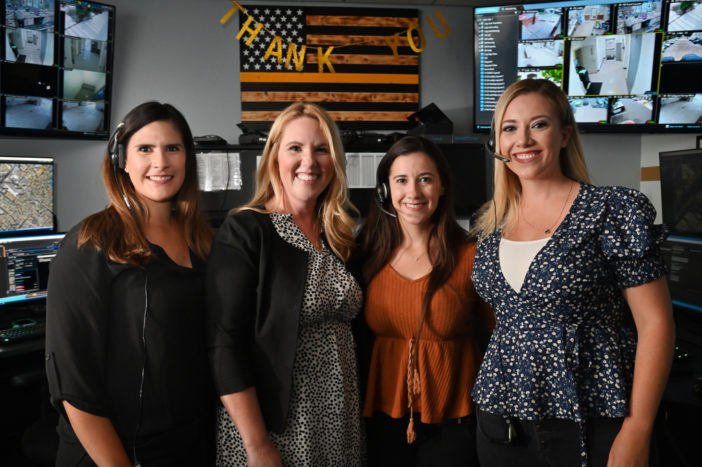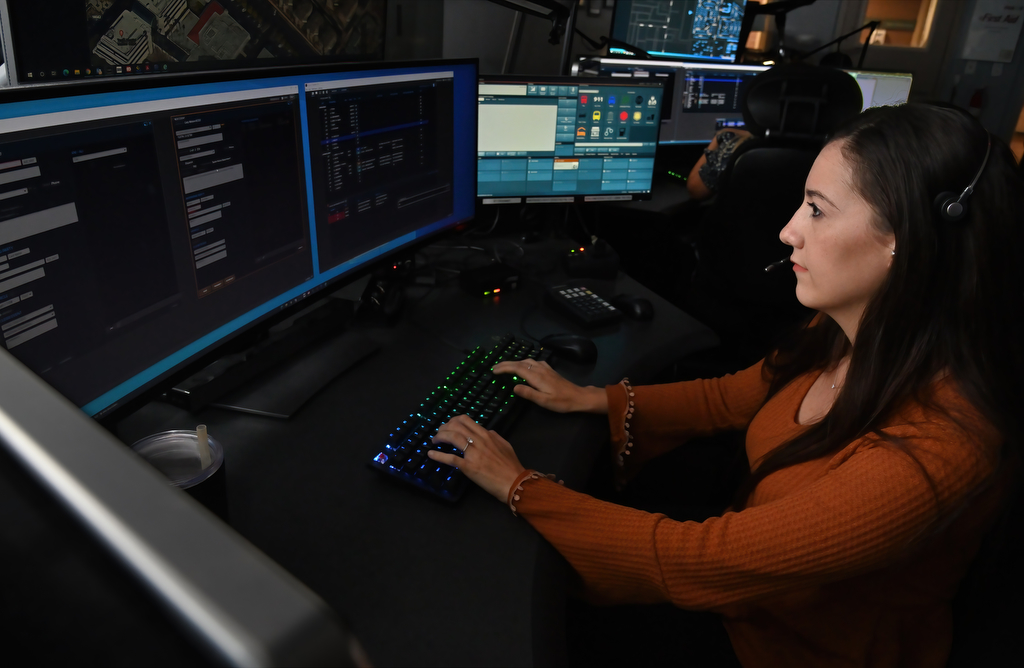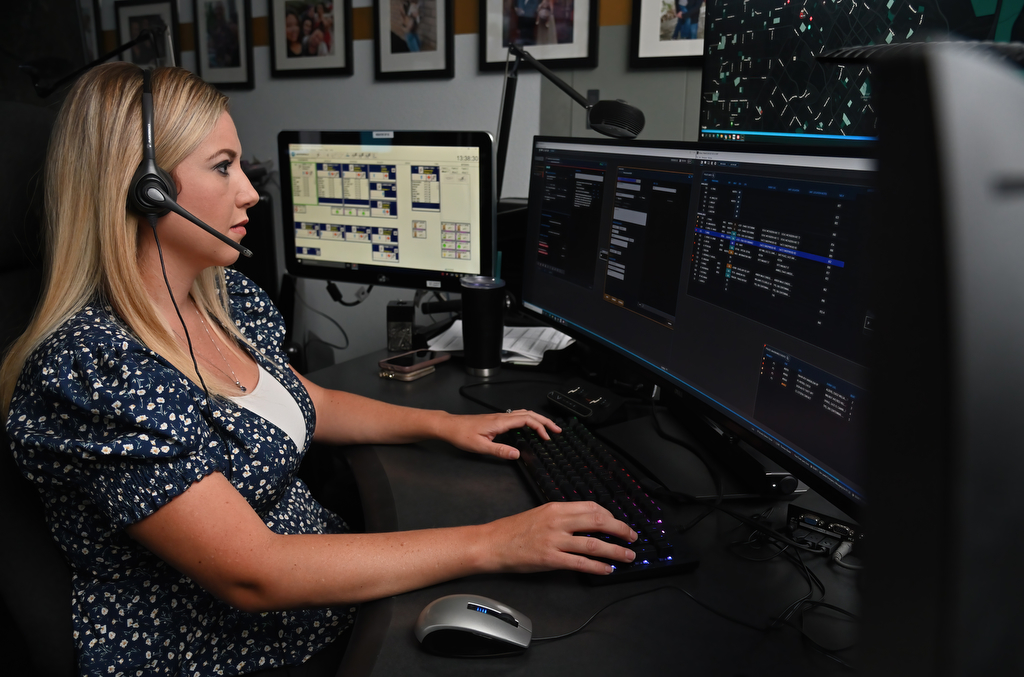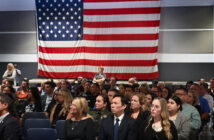The ability to multitask is a requirement in several careers, but for 911 dispatchers multitasking is taken to level beyond what most people can comprehend.
At the Tustin Police Department, dispatchers are simultaneously answering calls and dispatching officers , with the safety of the public and police offers hanging in the balance with every split second decision.
It could be a robbery in progress or an officer-involved shooting.
A baby not breathing or an abduction.
A suicide attempt, a rape, or a murder.
Before first responders begin to roll, dispatchers are the first point of contact.
“We’ve always been the first first-responders,” said Communications Supervisor Kristin Fetterling, a former Tustin Police Department dispatcher who now oversees operations in the department’s 911 center.
Along with 911 calls, Tustin Police Department dispatchers handle calls for fire services, non-emergency calls, calls to administrative lines and text-to-911 messages.
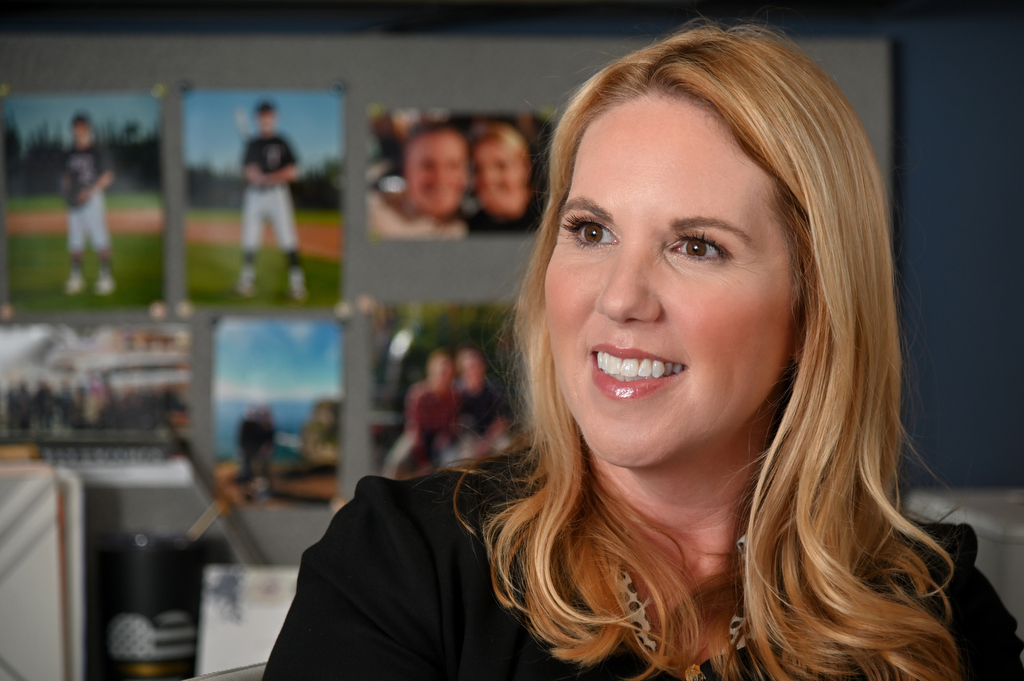
Communications Supervisor Kristin Fetterling of dispatch at the Tustin Police Department.
Photo by Steven Georges/Behind the Badge
At the very least, dispatchers need to be detail oriented, organized, and calm in stressful situations, Fetterling said.
“Your voice can dictate how the officers respond,” Fetterling said. “So, we train our dispatchers to stay calm, cool, and collected no matter what is coming at them.”
Recently, dispatchers were officially classified by the state as “first responders,” a title that is appropriate and well deserved, Fetterling said.
Of the nearly 100,000 calls answered by Tustin Police Department dispatchers in 2020, nearly 22,000 were 911 calls. And almost 99.5 percent of the incoming calls were answered within 15 seconds, Fetterling said.
Just like officers on patrol, dispatchers work 24 hours a day, every day of the year.
To be considered for the job, prospective dispatchers must take a polygraph test, undergo and pass a background check, and undergo and pass psychological and medical examinations.
When hired, dispatchers spend months with a trainer. Training typically takes from six months to a year, Fetterling said.
Carly Watson, who has been a Tustin Police Department dispatcher for three years, wanted a career in law enforcement where she could be close to the action, but she didn’t want to be a police officer.
“I still wanted to be in the mix of everything,” Watson said. “I just like how everything is different. The calls are never the same. Every day is different. You never know what you are going to get.”
There are times dispatchers play a role in identifying and tracking down suspects.
Having only a small photo of a suspected rapist passed along to her by officers, dispatcher Chelsea Jensen once spent several hours online working to identify the suspect and ultimately was able to provide officers with the suspect’s name and address, which helped officers locate and arrest the suspect.
“There is a lot more than just answering the phone and talking on the radio,” said Jensen, a 13-year dispatch veteran from a law enforcement family. “I love being able to help the officers in any way possible. If I am able to provide information which helps the officers find a suspect or solve a crime it really makes me feel like I made a difference. That’s my favorite part of the job for sure.”
Throughout their career, every dispatcher will inevitably handle that one call that they will never forget, Fetterling said.
For Fetterling, that call came early in the morning on Feb. 19, 2013, when a gunman killed three people and injured three others before turning the gun on himself.
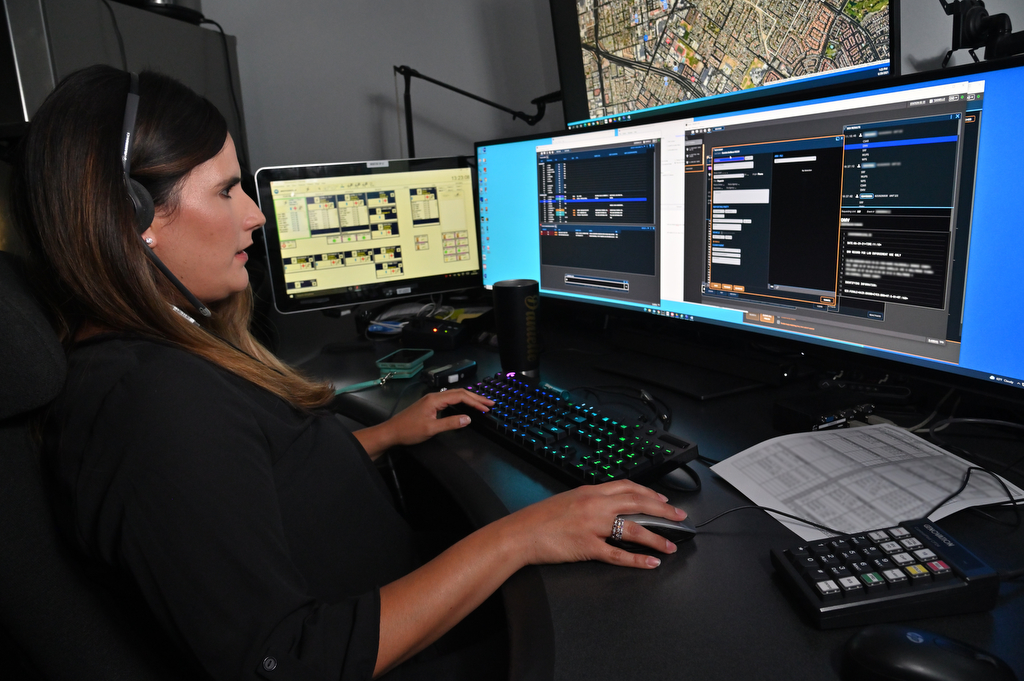
Dispatcher Danielle Del Merari of the Tustin Police Department.
Photo by Steven Georges/Behind the Badge
Fetterling and her fellow dispatchers took call after call related to the incident, which spanned multiple cities before coming to an end.
“Every time we hung up the phone, another one was ringing,” Fetterling said. “There was another victim in another location. (We tried) to find out where the suspect is going, who the suspect is, and handle all of that at the same time. It was just one of those calls you will never get again.”
Dispatchers and officers form a unique bond, Fetterling said, because they go through once-in-a-lifetime experiences, and they go through them together.
“It’s a lot of responsibility on those calls,” she said. “You just want to make sure everybody goes home safe at the end of the day.”
 Behind the Badge
Behind the Badge
